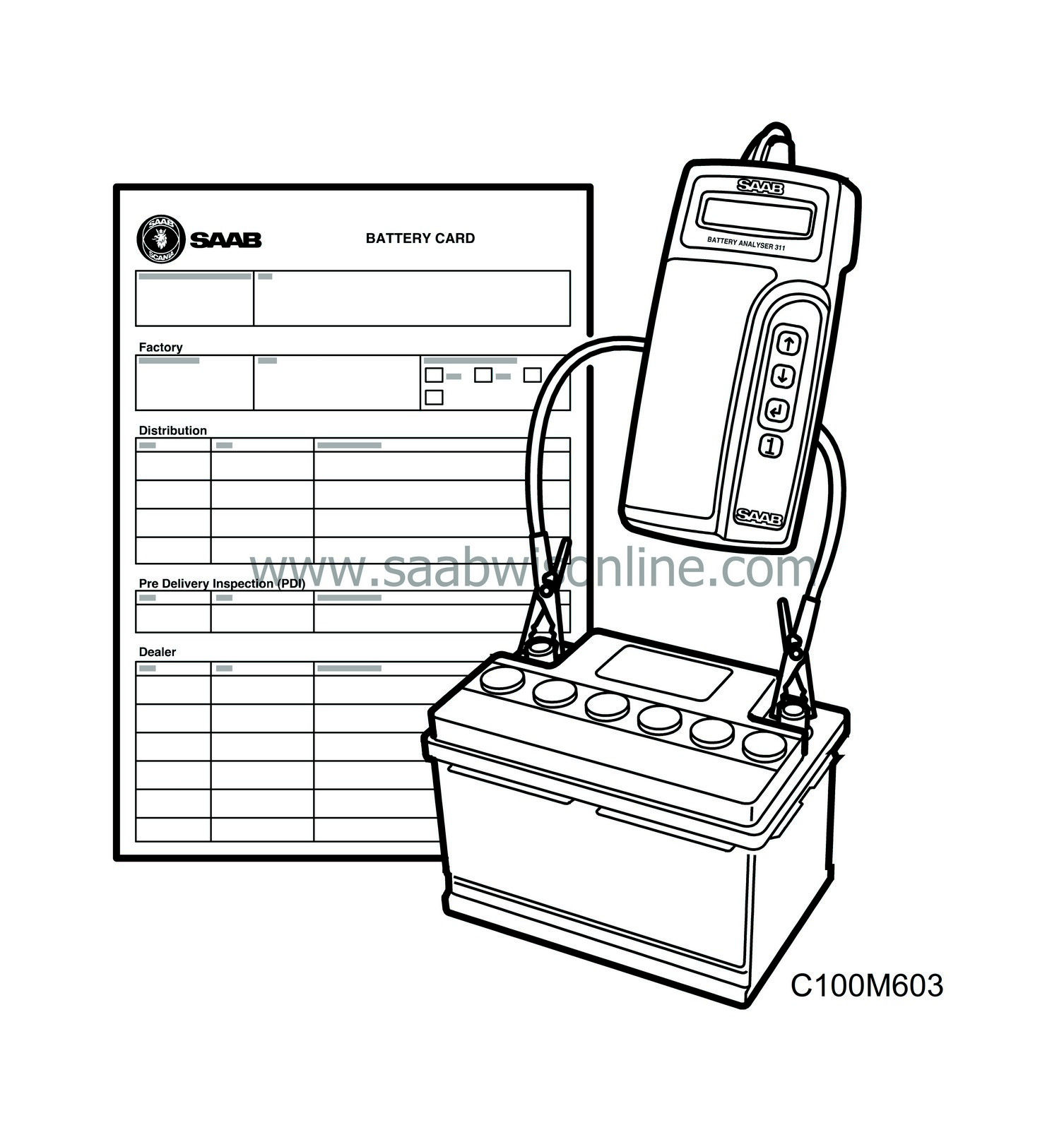Acceptance inspection of a new car
|
|
Acceptance inspection of a new car
|
Acceptance inspection of a new car is mandatory for all Saab cars. See Policies and Procedures (P and P).
Perform the inspection and sign the report as confirmation. Report, see
 .
.
A new car must be inspected as soon as possible after it has been accepted. The person responsible for acceptance must ensure that defects and deficiencies, etc. are reported in accordance with applicable procedures (see P and P).
|
1.
|
Check that the specification of the car coincides with the order form. This also applies to optional equipment.
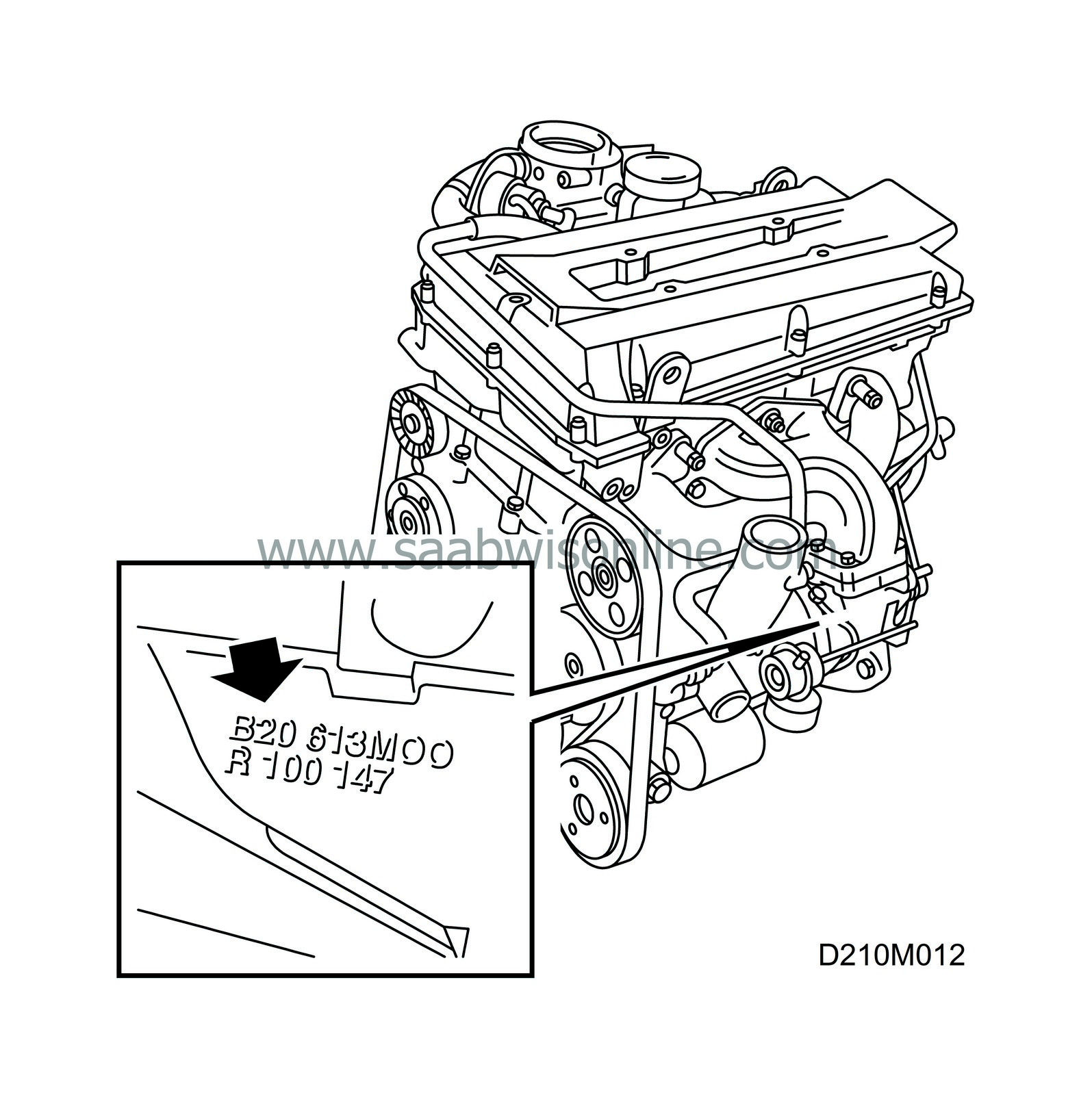
|
|
2.
|
Check that the spare wheel, tools and other equipment supplied with the car are present.
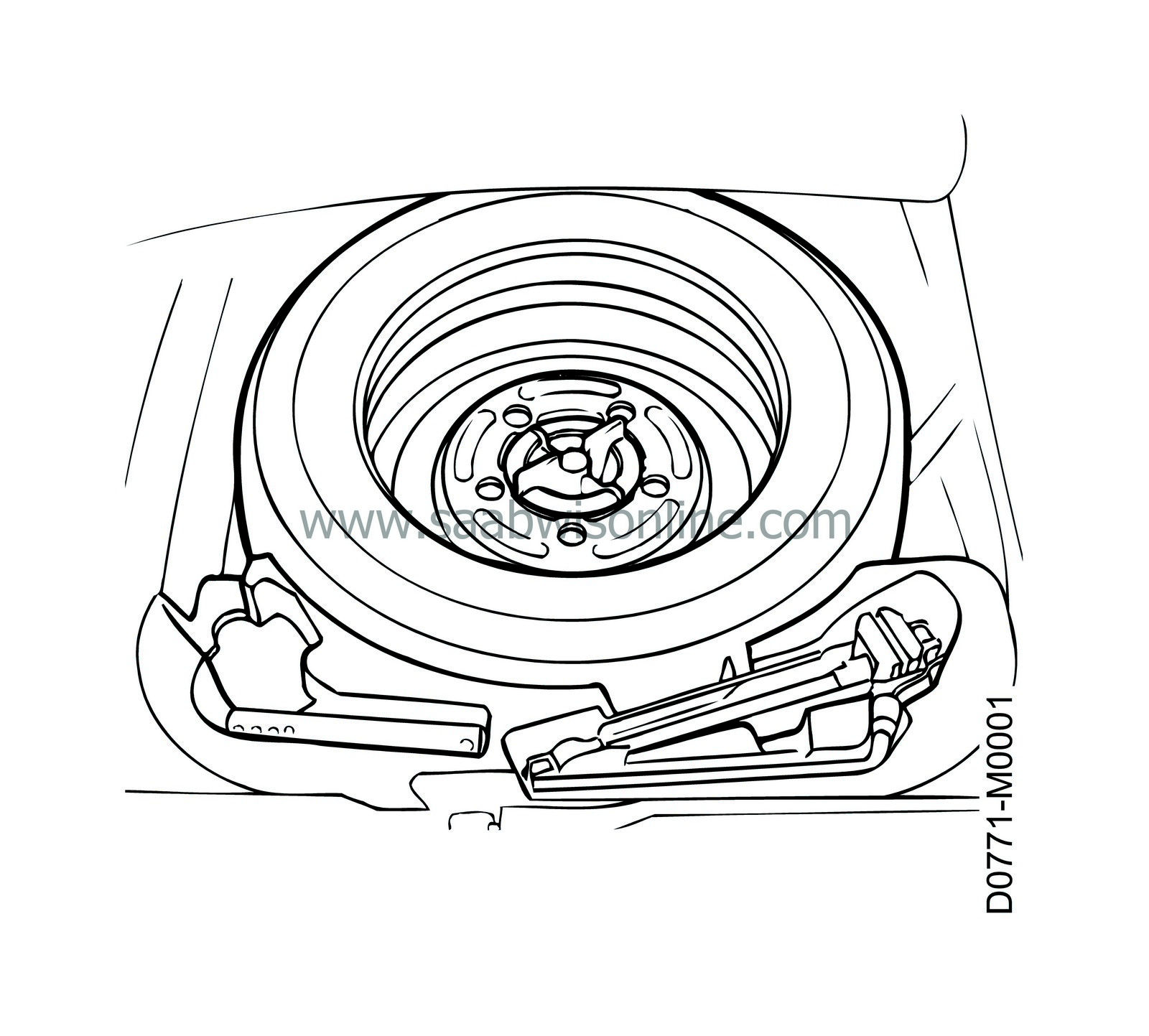
|
|
4.
|
Clean the car in preparation for the paint and damage inspection. Washing the car with strong alkaline detergent may affect the paint finish. Use as little chemicals as possible when washing the car.

If the car is to be put in storage, wash off dirt and dust in preparation for the inspection without using removing agent Tempro 75 (the paint protector will then be preserved).
Cars with RAPGARD paint protection: If the RAPGARD paint protection has been damaged, loosen it and inspect for any damage. Store the car under cover from then on.
|
Important
|
|
On Convertible models, leave the transport protection over the soft top in place when washing off the paint protector with Tempro 75.
|
|
|
|
|
5.
|
Inspect the car internally and externally for damage.

|
|
6.
|
Make a note of and report any damage and other observations.
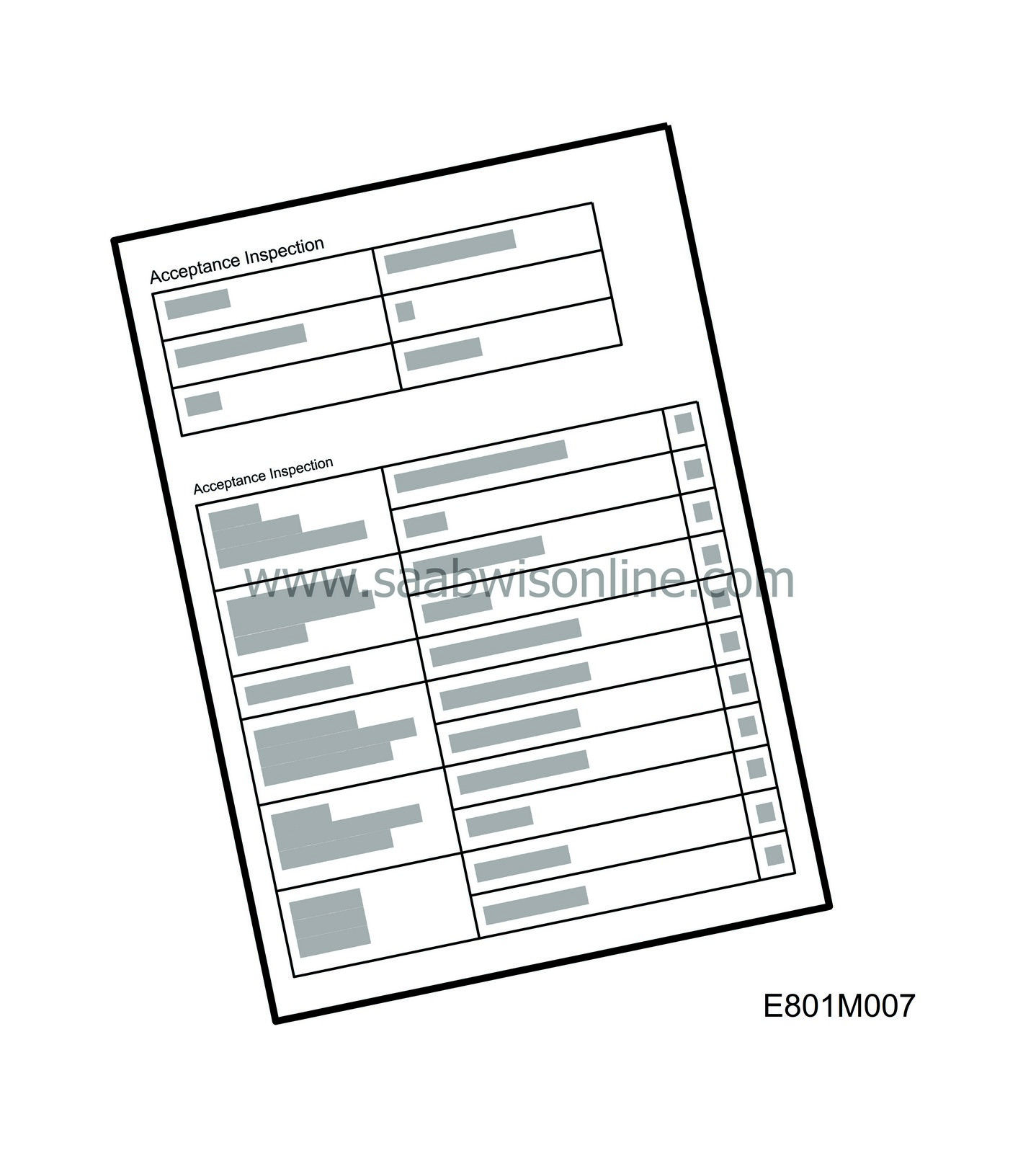
|
|
Measures to take if the car is to be put in storage
|
|
1.
|
Check the tyre pressure and adjust to 3.5 bar (50 psi) if necessary.
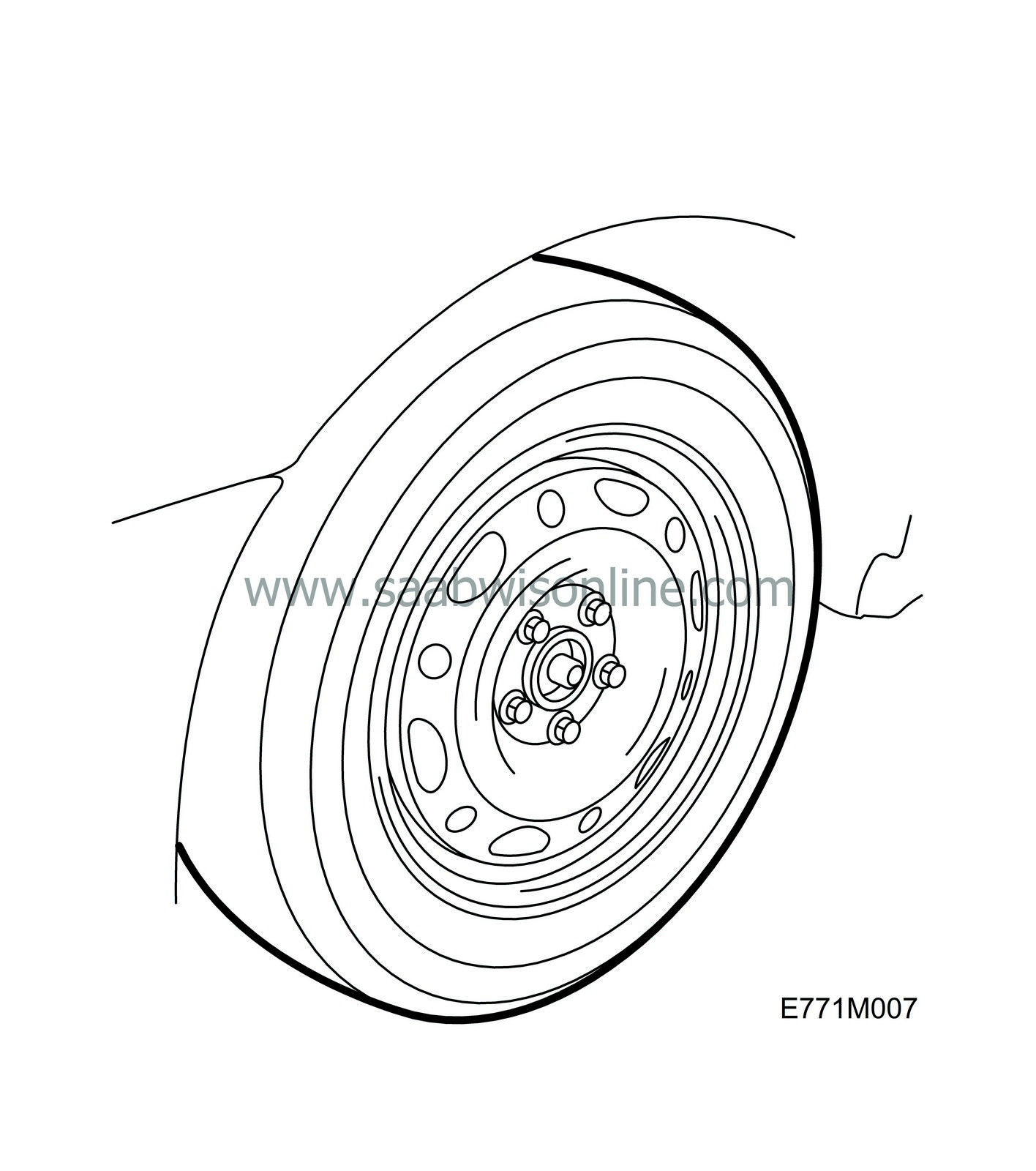
|
Important
|
|
If the car is parked for long periods with underinflated tyres, a flat area will be formed on them where they rest on the ground. This gives rise to vibration and makes wheel balancing more difficult.
|
|
|
|
|
2.
|
If the car is stored in ambient temperatures exceeding +20°C, fill the fuel tank to 2/3 full. Otherwise, there is a risk of the fuel pump malfunctioning due to oxidation.
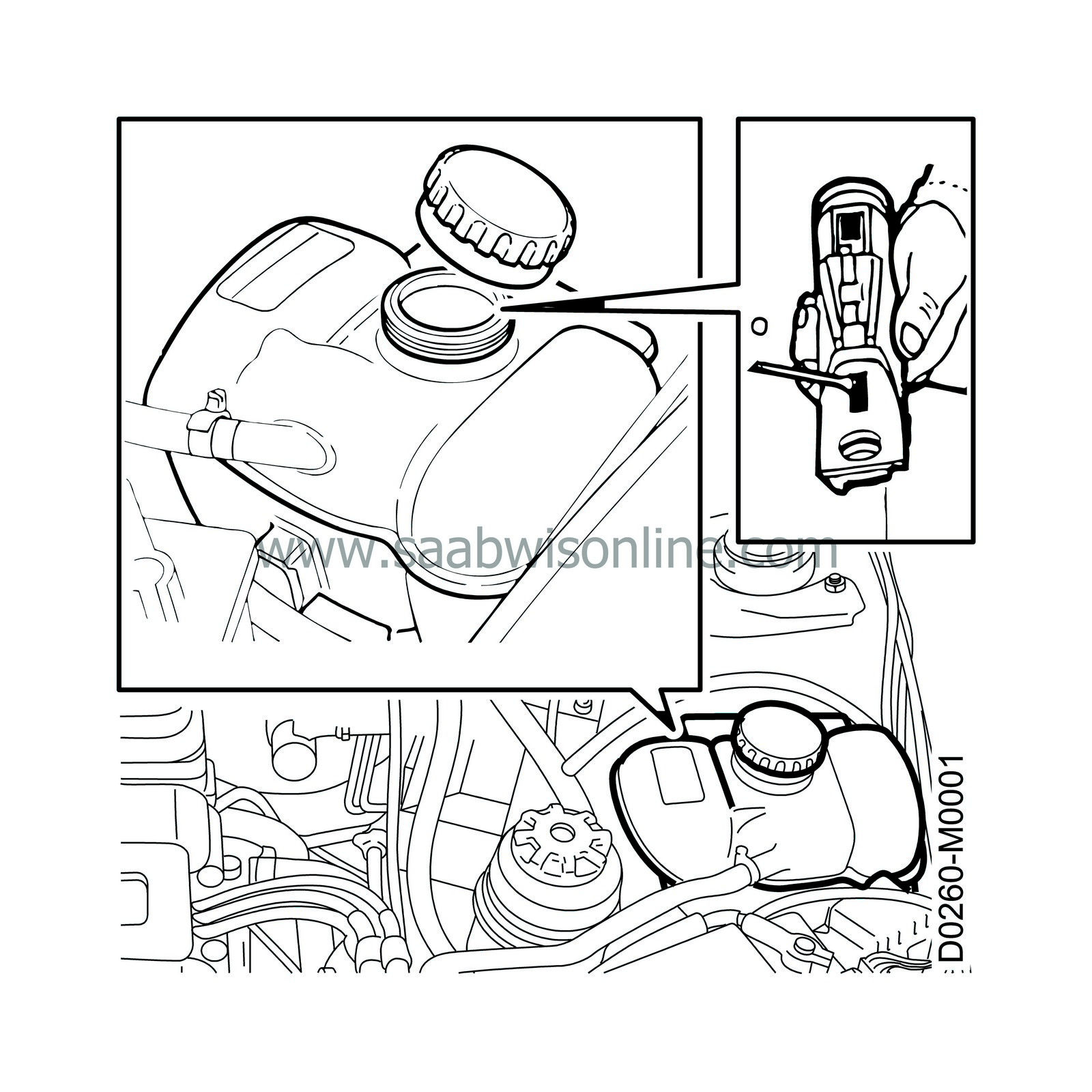
|
|
Additional measures if the car is to be stored outdoors
|
|
1.
|
Check the level of coolant and the antifreeze. The coolant should be able to withstand at least -30°C (-22°F). It will then also provide maximum corrosion protection. In certain climates, it is necessary for the coolant to withstand even lower temperatures. If necessary, top up with a 1:1 mixture of Saab Original Antifreeze and water.
|
|
2.
|
If the car's RAPGARD paint protection has been removed, the car must be stored under cover.
|
|
3.
|
Drive the car to the storage car park, applying the brakes briefly and repeatedly so that the brake discs will be clean and dry.
|
|
5.
|
Check the protective plastic on the seats and adjust if necessary.
|
|
6.
|
Make sure that: The handbrake is released and in the off position. Reverse gear is engaged (manual gearbox). The selector lever is in position P (automatic transmission). All windows, doors and boot lid are properly closed.
|
|
8.
|
Disconnect the negative cable from the battery or remove the battery for charging. Close the bonnet.
|
 .
.


